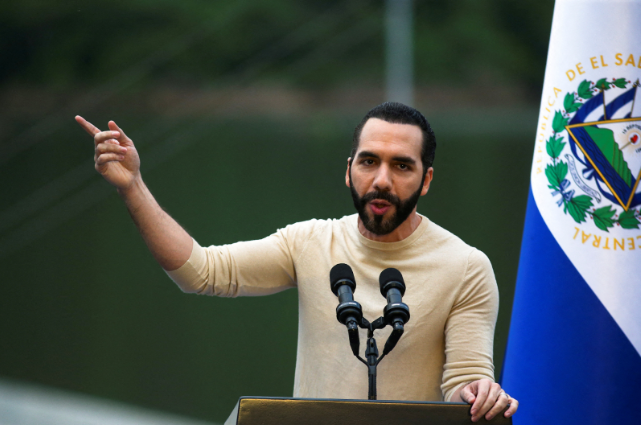Who is the “World’s Coolest Dictator”?

Image Courtesy of Reuters
By John Maggio
El Salvador held a general election earlier this month. In a major electoral landslide, the incumbent president, Nayib Armando Bukele Ortez or just Nayib Bukele, and his party, Nuevas Ideas (Spanish for “New Ideas”; abbreviated to NI), won to hold onto the executive and legislative branches. President Bukele, who was first elected in 2019, has seen a controversial yet popular tenure while in the Casa Presidencial (Spanish for “Presidential House”).
Bukele, who once labeled himself as the “world’s coolest dictator” on his X profile, was reelected with 83% of the vote in the general election on February 4. This reelection came with some controversy, like much of his presidency. The Salvadoran Constitution does not allow consecutive terms for the presidency. Still, the constitutional court ruled last year that he could run again if he stepped down from the office for six months before the inauguration on June 1, which he did on November 30, 2023.
What is most controversial about his first term is his crackdown on gangs within the country, which Amnesty International said has led to “an alarming regression” of human rights. With over 1% of the Central American nation behind bars, it has been able to make El Salvador go from one of the most dangerous nations in the region to one of the safest in just a few years. Part of this policy to combat a surge of gang violence has been the construction of a mega-prison just outside of the capital city of San Salvador. This prison can hold up to 40,000 prisoners, with cells made for 65 to 70 prisoners. With homicide being down over 90% since 2015, Bukele’s popularity has only increased, once hitting 91% last year.
Bukele’s declaration of a state of emergency in 2022 to fight against these criminal gangs has led to some concerns over human rights abuse. This mega-prison has “no programs preparing them for reinsertion into society after their sentences, no workshops or educational programs,”Associated Press reports. This crackdown has led to nearly 190 deaths and over 5,000 human rights abuses, according to human rights groups.
The Salvadoran President also has a deep affinity for Bitcoin, which is a digital wealth storage blockchain that is decentralized from traditional monetary systems. In 2021, he announced the creation of a “Bitcoin City”, a coastal city that would be powered by a nearby volcano, have a monument to the digital cryptocurrency, and be a center for Bitcoin mining – the energy-heavy process of using supercomputers to complete cryptographic problem for the cryptocurrency. He also made Bitcoin legal tender, being the first nation to do so. Thanks to him, El Salvador has started purchasing a Bitcoin a day since November 2022. Bukele also installed 1,500 cryptocurrency ATMs in El Salvador.
NI won by far in the legislative election for the unicameral chamber this month. The Legislative Assembly used to have 84 seats, but a proposal by Bukele was passed reducing the number of seats to 60.







